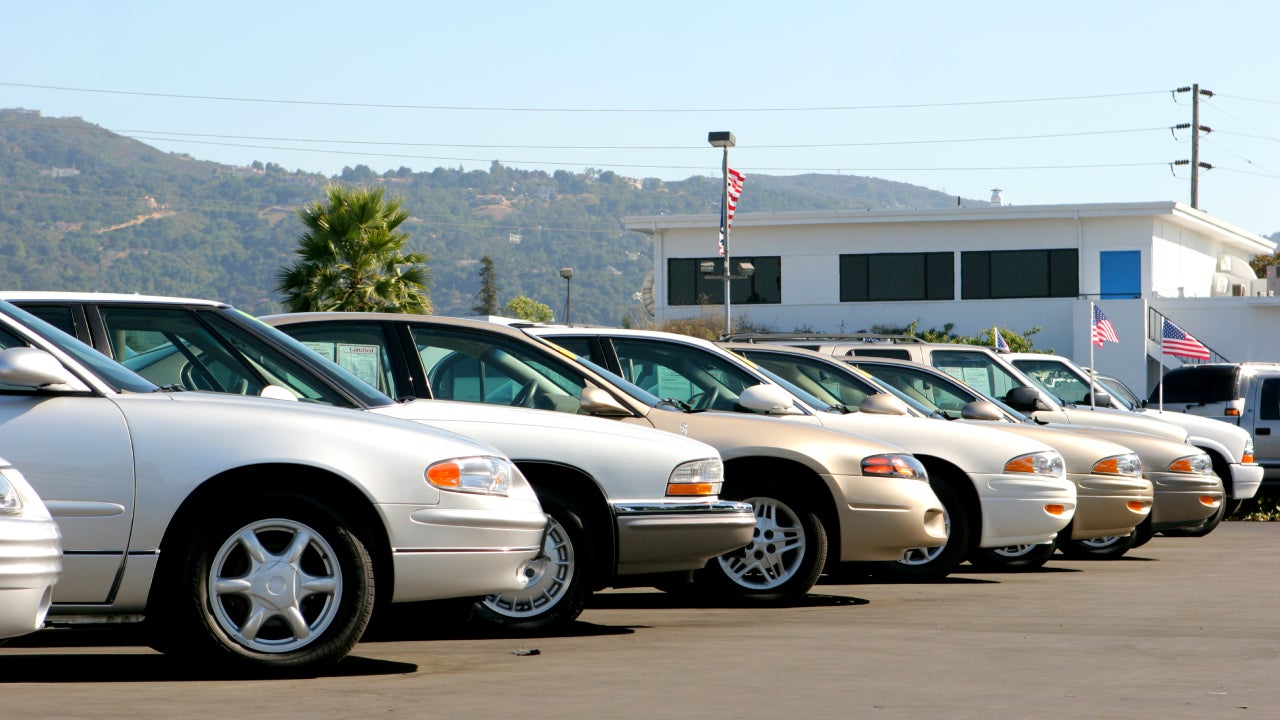How does car insurance with telematics work?

In the world of car insurance discounts, telematics is the “big new thing.” Using GPS technology to track drivers in real time, telematics permits insurers to observe individual drivers’ actual safety habits on the road and assign discounts — or, in some cases, rate increases — accordingly. Insurers offering telematics discounts may be the most affordable option for many drivers — but like any new technology, telematics may also come with drawbacks. Bankrate’s insurance editorial team investigated the best car insurance telematics programs and weighed up the pros and cons to help you make an informed decision.
What are telematics programs?
Telematics is a type of usage-based insurance that uses GPS technology to capture drivers’ actual driving habits. By tracking a vehicle’s position and activity on the road, insurance companies can collect data on various driving habits that can impact your overall risk, such as:
- How often you drive above the speed limit
- How often you brake hard or come to a sudden stop
- How often you accelerate quickly
- How smoothly you take corners
- How many miles you drive annually
- How often you drive late at night
- How often you interact with your phone while driving
Most telematics insurance programs focus on safety and award drivers with discounts for both enrolling in the program and avoiding unsafe behaviors. A few insurance companies also offer programs that use telematics to base rates primarily on how much you drive, which may be a good option for car owners who rarely drive.
In most cases, a telematics program uses a smartphone app to track your driving and deliver the relevant data to your insurance company. In some cases, depending on the state you live in and your insurer’s policies, you may need to install a small tracking device which plugs into your car’s OBD-II port to participate in a telematics insurance program.
Using telematics programs has been shown to promote road safety by increasing drivers’ awareness of their habits and decreasing common driving problems like distraction. However, some drivers may have concerns about the safety of telematics from a data security perspective.
The reality is that telematics requires drivers to share a large amount of personal data with their insurance company, which may include:
- Geolocation data
- Personal identifiers and household demographic information
- Internet browsing and search history
- Purchasing history and tendencies
In many cases, this data is not subject to strict regulations. As of 2024, only California and New York have clear statewide restrictions on how insurers can collect, store and use data for telematics purposes. In other states and in the privacy agreements of most major insurers, loopholes may permit carriers to share or sell customer data collected through telematics.
Choosing whether to use telematics for auto insurance is a personal decision based on your level of comfort with your insurer’s policies and the current state of data privacy laws where you live.
Car insurance companies with telematics programs
Most major insurance providers offer telematics programs to extend potential discounts to policyholders. These discounts typically fall into three categories:
- Enrollment discounts: Most insurers offer a sign-up discount, typically between 5 and 10 percent, just for enrolling in a safe driving telematics program. This may be a one-time discount that only applies to the policy period in which you signed up.
- Safety discounts: The most common type of telematics discounts, these offer savings based on the safe driving score you earn while participating in the program. Safety discounts vary considerably based on driver performance but can be as high as 30 to 40 percent off your premium.
- Low-mileage rates: Instead of discounts applied to your base premium, low-mileage telematics programs typically offer a low daily or monthly base rate calculated via traditional underwriting practices, along with a per-mile rate that applies only to days when you drive your vehicle.
Allstate
Allstate advertises the biggest telematics insurance discount of any major carrier — 40 percent off for policyholders who participate in DriveWise and achieve a high enough driving score.
Available in all states except Alaska and California, DriveWise calculates discounts based on just three basic factors: speeding, hard braking and late-night driving. However, drivers who log unsafe driving habits could see their premium go up as a result of using DriveWise.
Allstate also offers the MileWise usage-based insurance program designed for low-mileage drivers. Drivers who enroll in this program pay for insurance per mile, while still choosing from standard auto insurance coverage types. Allstate recommends pay-per-mile insurance for low-mileage drivers such as those who work from home, commute using public transportation or retirees. MileWise is currently only available in 21 states.
Learn more: Allstate Insurance review
Geico
Geico’s DriveEasy program is available in 37 states, plus Washington D.C. DriveEasy uses a large number of factors to calculate discounts, including braking and acceleration, phone use, cornering, time of day and overall driving smoothness. Drivers who participate could see increased rates as a result of unsafe habits, but Geico’s mobile app also allows users to track their driver score and habits in real time, which may make it easier to see where you could improve your driving.
Geico’s DriveEasy also has a Crash Assist predictive crash detection feature. If you hard brake, the app will ask if you were involved in a crash, then navigate to the claims department so you can start the process.
Learn more: Geico Insurance review
Nationwide
Nationwide, which ranked #1 among usage-based insurers in the 2024 J.D. Power U.S. Auto Insurance Study, has two telematics programs — SmartRide and SmartMiles. SmartRide uses five key factors to track driving safety: nighttime driving, miles driven, braking, acceleration and idle time, which is used as an indicator of traffic congestion. Drivers who enroll in SmartRide, Nationwide’s safe driving telematics program, may earn a 10 percent discount just by signing up, with potential savings up to 40 percent for safe driving habits. Unlike some telematics programs, SmartRide will not increase rates for drivers who end up with low scores.
SmartMiles is a pay-per-mile usage-based program. The program is available in almost every state and rewards safe drivers with lower per-mile costs.
Learn more: Nationwide Insurance review
Progressive
Progressive’s Snapshot is a usage-based program that tracks your driving habits through a plug-in device or telematics app. Snapshot is available in all states except California. Progressive tracks five basic driving factors: time of day, amount of time spent driving, hard braking, acceleration and trip regularity. In some states, phone use is also a factor in your discount.
On average, drivers save $94 at sign up and then $231 per year when the program is completed, which will show on your next policy renewal. With Progressive, high-risk driving habits could cause premiums to increase, which happens to around 20 percent of drivers taking part in the Snapshot program.
Learn more: Progressive Insurance review
State Farm
State Farm’s Drive Safe and Save is a telematics discount that offers up to 30 percent off for safe driving. Drive Safe & Save includes a free Accident Assistance feature which offers emergency services if a crash is detected while you’re using the program.
In most states, Drive Safe & Safe users must download a separate telematics app and install a Bluetooth beacon in their car. However, drivers in Illinois can participate in Drive Safe & Save through the State Farm mobile app.
Learn more: State Farm Insurance review
Compare telematics programs
| Allstate | Geico | Nationwide | Progressive | State Farm | |
|---|---|---|---|---|---|
| Tracks hard braking | X | X | X | X | X |
| Tracks harsh acceleration | X | X | X | X | |
| Tracks cornering | X | X | |||
| Tracks phone use | X | X | X | ||
| Tracks speeding | X | X | |||
| Tracks late-night driving | X | X | X | X | |
| Low-mileage app available | X | X | |||
| Enrollment discount | 10% | Undisclosed | 10% | $94 (average) | 10% |
| Safe driving discount | Up to 40% | Up to 25% | Up to 40% | $231 (average) | Up to 30% |
Other companies that offer telematics
Many other major car insurance companies also offer telematics programs. You may be able to save by participating in these other telematics car insurance programs:
- American Family: KnowYourDrive and MilesMyWay
- Farmers: FairMile and Signal
- Liberty Mutual: RightTrack
- Root Car Insurance
- Travelers: IntelliDrive
- USAA: SafePilot
Is a telematics program right for me?
While a telematics program could be the most effective way for many drivers to save on car insurance, it may not be the right option for everyone. If you regularly practice safe driving habits, have low average mileage and don’t drive late at night, a telematics program might be right for you.
However, if you have a long commute, regularly drive at night or drive in stop-and-go traffic that could force abrupt stops or other risky driving behaviors, a telematics program may not be the right choice for you. You may also be unable to use many telematics programs if you live in California, where state regulations only permit insurance companies to use telematics to track drivers’ mileage.
| Advantages of telematics | Disadvantages of telematics |
|---|---|
| More affordable rates for low-risk drivers | Requires drivers to share large amounts of data with insurer |
| Less weight on traditional rating factors like credit score and location | Potential insurance cost increase with some programs |
| Usage-based rates for drivers | Some tracking requirements may encourage unsafe driving |
What real drivers say about using telematics
To get a closer look at what real drivers who’ve used telematics programs thought of the experience, we turned to Reddit. Among numerous threads discussing popular telematics programs like State Farm’s Drive Safe & Save or Progressive’s Snapshot, we found users discussing several themes: concerns about safety, data privacy, strategies to maximize discounts and overall ease of use.
Unsafe habits
To be honest. It made me a worse driver. Sometimes there is not enough time when the light changes to yellow to stop. But I am still too far to pass it safely. So I end up passing a light that literally turns red as I cross.
Or when a car stops suddenly in front I slow down to the point I am almost rear ending to avoid that noise.
I got the one you put in the car, because I sometimes take Ubers for work and did not want that recording my Uber rides.
– via Reddit community
Privacy
As a customer who has one, the biggest downside is the fact that you are tracked on everywhere you go with everything you do. I find it more of a pain because now it’s pointing out all of my flaws in my driving. It keeps a record of how hard you brake, how fast you accelerate, if you are speeding, if you corner too hard through a turn, and how many times you look at your phone while driving.
Is it worth the discount? Yes, I would say so but I’m not liking how State Farm could use this data that they are collecting against me in my future premium renewals.
– via Reddit community
We give up our privacy in this godforsaken market all the time. I’ll gladly pay a little extra not to have someone tell me I’m breaking too hard.
– via Reddit community
Strategies
I did this ten years ago, and I worked the system. I walked/took the bus as much as I could. Fortunately at the time, I lived close enough to work where I could walk. If I needed to drive during high-risk hours, I would borrow my roommate’s car. I ended up getting the maximum 30% discount and I still have it to this day.
– via Reddit community
Ease of use
The Allstate app worked great on my phone. Lowered my premium slightly but it wasn’t any extra work. I drive like a grandma though.
– via Reddit community
I’ve done this with Progressive and another company (can’t remember which). Both times were a prolonged annoying chore which yielded not enough of a discount to bother.
– via Reddit community
Frequently asked questions
Why we ask for feedback Your feedback helps us improve our content and services. It takes less than a minute to complete.
Your responses are anonymous and will only be used for improving our website.
You may also like

What is car storage insurance?

How to choose the best car insurance company


What is car insurance and how does it work?




